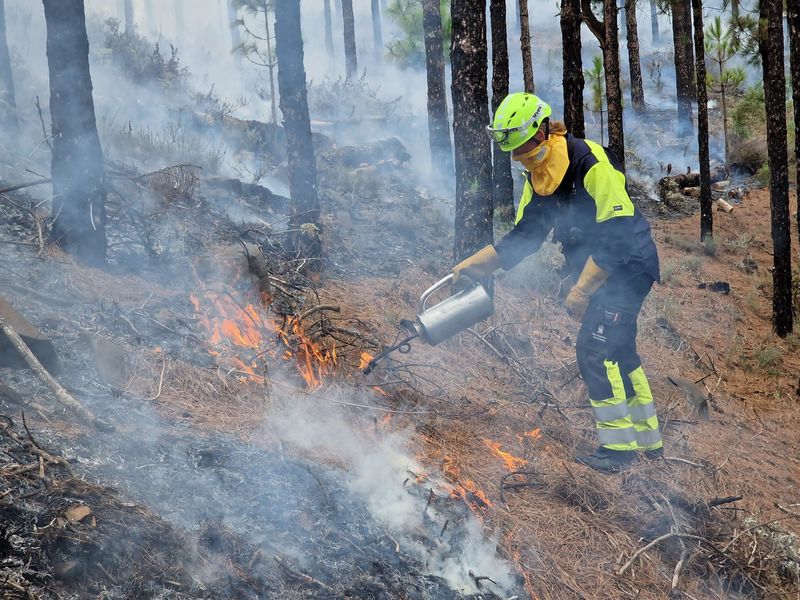The FIREPRIME project (“European Programme for Wildfire-Prepared Communities”) launched its kick-off meeting on February 6th and 7th at UPC’s Campus Besòs in Barcelona. This initial gathering convened FIREPRIME partners (CERTEC-UPC, coordinator; Pau Costa Foundation; IN3-UOC; RISE Research Institutes of Sweden AB, and Universitaet Fuer Bodenkultur Wien, BOKU) to review the project’s work packages, calendar and organisation while taking a look at tasks and planning the main activities for the coming months. FIREPRIME is a two-year project that has received funding (€673,698 from the EU’s UCPM-2023-KAPP programme.
FIREPRIME’s primary objective is to lay the groundwork for a pan-European initiative fostering a fire-resilient ethos among Wildland-Urban Interface (WUI) communities. Informed and well-prepared communities in the face of the growing intensity and magnitude of wildfires in Europe are key to the challenging work of civil protection services during a wildfire emergency.
“FIREPRIME will develop the knowledge, tools and services needed to build and implement an integral risk prevention and preparedness programme across Europe, focusing mainly on civil protection. Inspired by other collaborative frameworks like Firewise in the USA or FireSmart in Canada, FIREPRIME is foreseen to provide the foundation for an EU-genuine programme to foster fire resilience among WUI communities,” says Elsa Pastor, CERTEC-UPC, and the project coordinator.
In terms of work to be carried out, FIREPRIME plans to conceptualize the programme framework and governance at the pilot level, as well as create and deploy a comprehensive toolkit comprising a self-assessment smartphone app, safety guidelines, checklists, and educational materials aimed at bolstering wildfire resilience across three key focal points: households, communities, and infrastructure. The project’s tools will undergo development and tested in three European regions, each characterized by unique fire regimes, ecosystems, and socio-demographic profiles: the province of Barcelona in Spain (Mediterranean Europe), Tyrol in Austria (Central Europe), and Gothenburg in Sweden (Northern Europe).
“The municipalities and regions where FIREPRIME implementation will take place have been specifically selected based on their complementarity. This selection provides FIREPRIME with a solid foundation for further exploitation in areas with similar characteristics as our pilot sites, covering other Mediterranean, Central European or North European countries,” adds Elsa Pastor.
FIREPRIME also plans workshops with different stakeholders to understand and better focus on the toolkit design and implementation in the pilot tests. In that respect, the project prioritizes inclusivity, responsiveness, and sensitivity to diverse scenarios, fostering collaboration with local stakeholders and WUI communities. Insights drawn from Fireprime’s implementation will inform the co-creation of a strategic blueprint with interested stakeholders for the sustainable transfer and utilization of the project in other fire-prone regions across Europe.
“As for pilot sites, we will design a sustainability plan together with local stakeholders. This plan will establish local governance, which will follow the structure and roles already established for the pilot implementation. Local financing sources will be identified and a strategy to designate a FIREPRIME management board will be included. In parallel, a plan to expand the FIREPRIME programme to cover more fire-prone areas in the EU will be developed. The plan will include identifying potential beneficiaries such as governments, public authorities, and NGOs, and engaging local stakeholders to ensure they have the necessary knowledge and resources to implement the program effectively,” concludes Elsa Pastor.






